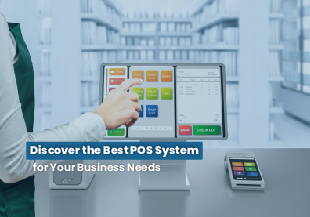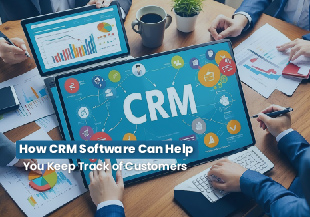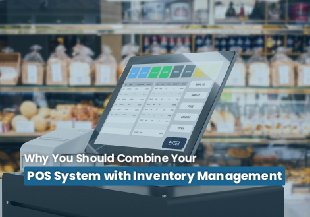In today's fast-paced and constantly changing business environment, managing a company's operations and resources efficiently is critical to its success.
In today's fast-paced and
constantly changing business environment, managing a company's operations and
resources efficiently is critical to its success. This is where enterprise
resource planning (ERP) software comes in. ERP software is a powerful tool that
can help organizations manage their operations, streamline processes, and gain
a competitive edge in the marketplace.
ERP software is an integrated
system that connects all the functional areas of a business, such as finance,
human resources, procurement, inventory management, and customer relationship
management (CRM), into a single system. By doing so, it provides real-time
visibility into business processes, which allows for better decision-making and
improved efficiency.
One of the key benefits of ERP
software is that it provides a centralized view of an organization's
operations, which allows for better collaboration and communication between
different departments. For example, a sales representative can use the ERP
system to view a customer's order history, which can help them provide better
customer service and improve customer satisfaction. Similarly, an accountant
can use the system to access financial data, such as invoices and payment
records, which can help them make better decisions about cash flow and
budgeting.
Another benefit of ERP software
is that it can automate many of the repetitive and time-consuming tasks that
are necessary for running a business. For example, the system can automatically
generate purchase orders when inventory levels are low, or it can automatically
generate invoices when a customer places an order. By automating these tasks, ERP software
can free up employees to focus on more strategic tasks that add value to the business.
In addition to improving
operational efficiency, ERP software can also provide valuable insights into
business performance. The system can generate reports on key performance
indicators (KPIs), such as sales revenue, inventory turnover, and customer
satisfaction, which can help managers make data-driven decisions about how to
improve their operations.
ERP software can also help
businesses stay compliant with regulations and standards. For example, the
system can generate reports on tax liabilities and assist with compliance with
labor laws and environmental regulations. This can help businesses avoid costly
fines and penalties and improve their reputation with customers and
stakeholders.
Implementing an ERP system can
be a complex and time-consuming process, but the benefits can be significant.
Here are some of the ways that ERP software can help businesses:
Improved operational efficiency:
ERP software can automate many of the routine tasks that are necessary for
running a business, such as generating purchase orders and invoices. This can
free up employees to focus on more strategic tasks and improve overall
efficiency.
Better collaboration: ERP
software provides a centralized view of an organization's operations, which can
improve collaboration and communication between different departments.
Real-time visibility: ERP
software provides real-time visibility into business processes, which allows
for better decision-making and improved efficiency.
Data-driven decision-making: ERP
software can generate reports on key performance indicators (KPIs), which can
help managers make data-driven decisions about how to improve their operations.
Compliance: ERP software can
help businesses stay compliant with regulations and standards, which can help
them avoid costly fines and penalties and improve their reputation with
customers and stakeholders.
In Pakistan, the use of ERP software has been
growing steadily in recent years as more businesses realize the benefits of
using an integrated system to manage their operations. Many businesses in
Pakistan have adopted ERP systems to streamline their processes, improve
efficiency, and gain a competitive advantage in the market.
One of the key benefits of ERP software in
Pakistan is its ability to improve operational efficiency. This is particularly
important in a country where businesses face many challenges, such as a lack of
infrastructure, limited access to credit, and high costs of doing business. By
automating routine tasks, such as inventory management and accounting, ERP
software can help businesses reduce costs, increase productivity, and improve
customer satisfaction.
Another benefit of ERP software in Pakistan is
its ability to provide real-time visibility into business processes. This is
important in a country where businesses face many external and internal
challenges, such as political instability, corruption, and a lack of
transparency. By providing real-time information on key performance indicators,
such as sales revenue and inventory turnover, ERP software can help businesses
make informed decisions and respond quickly to changing market conditions.
In addition to improving operational
efficiency and providing real-time visibility, ERP software in Pakistan can
also help businesses stay compliant with regulations and standards. This is
particularly important in a country where businesses face many legal and
regulatory challenges, such as complex tax laws and labor regulations. By
automating compliance tasks, such as tax reporting and labor management, ERP
software can help businesses avoid costly fines and penalties and improve their
reputation with customers and stakeholders.
Despite the many benefits of ERP software in
Pakistan, there are also challenges to implementing an ERP system software. One of the
biggest challenges is the cost of implementation, which can be significant for
small and medium-sized businesses. However, many ERP vendors in Pakistan offer
flexible pricing plans and financing options to help businesses manage the cost
of implementation.
Another challenge to implementing an ERP
system in Pakistan is the lack of skilled resources. Many businesses in
Pakistan struggle to find skilled IT professionals who can implement and
maintain an ERP system. However, many ERP vendors in Pakistan offer training
and support services to help businesses overcome this challenge.
In conclusion, ERP software and ERP systems in
Pakistan can provide many benefits to businesses that want to improve their
operations, streamline processes, and gain a competitive advantage in the market.
By improving operational efficiency, providing real-time visibility, and
helping businesses stay compliant with regulations and standards, ERP software
can help businesses overcome many of the challenges they face in Pakistan's
business environment. While there are challenges to implementing an ERP system
in Pakistan, many ERP vendors offer flexible pricing plans and training and
support services to help businesses overcome these challenges and reap the
benefits of ERP software.






 Chat with Prismatic Bot
Chat with Prismatic Bot